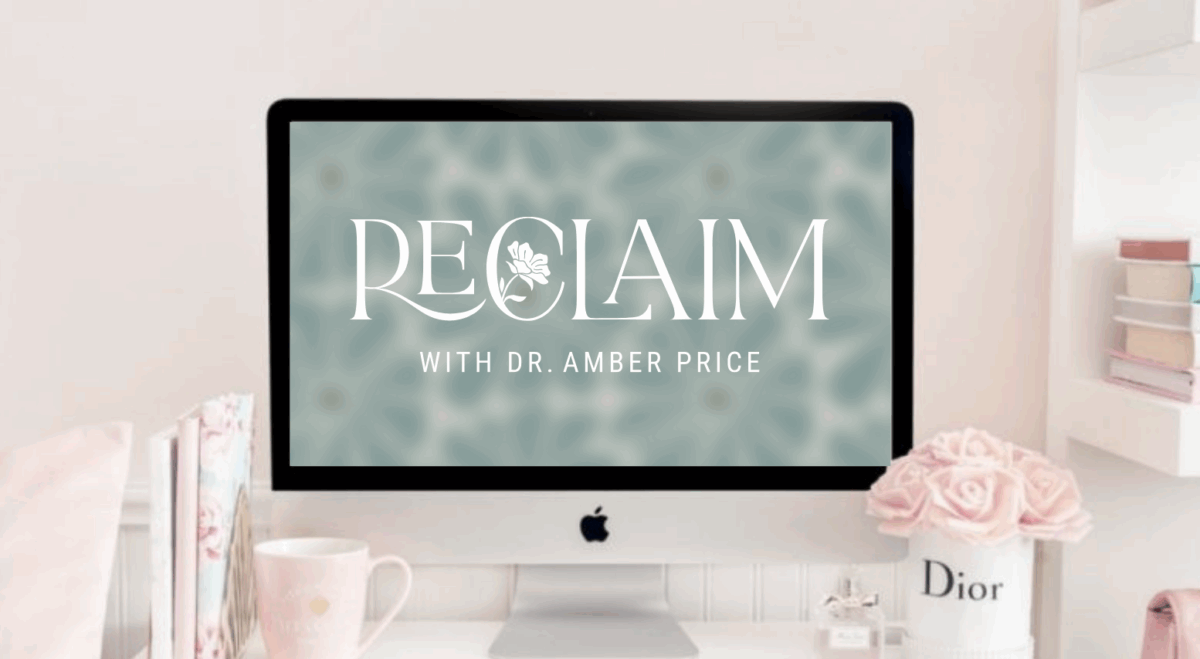Summary: Wondering how to set healthy boundaries in a relationship (without feeling like a jerk)? True boundary setting starts with knowing yourself and seeing yourself as an individual within a relationship. Often things like self-silencing, people-pleasing, and codependency blur relationship boundaries and erode connection. This article will help you understand simple ways to protect your sense of self in marriage, motherhood, friendships, family, and work so your relationships become more connective and fulfilling.
I’ll just be upfront with you and say that I don’t always love it when we talk about “boundaries.” Not because I think they are unimportant. I think that boundaries are vitally important to healthy relationships and research backs that.
I don’t always love it because many people use the term inaccurately or water it down.
They use so-called “boundaries” to build walls instead of building connection. Or they call something a “boundary” when really, it’s a petty way of keeping score and ultimately damages relationships.
When we do things like that, instead of letting boundary setting be a strength in our relationships, these supposed boundaries can actually weaken relationships and drive us apart.
But real boundaries can give you relationships that are incredibly connective and fulfilling. That’s because they allow you to feel like yourself instead of getting lost in the relationship (which is good for no one).
Let’s talk about three aspects of boundaries you maybe haven’t considered (and probably won’t read about in other articles) and how these three things can improve your relationships today.
And this is applicable to any relationship, whether that’s your romantic relationship, your motherhood, your friendships, with your family, with co-workers, or any other relationship, close or casual.
#1: Establishing Boundaries is NOT About What You Say
The first and most important thing to understand about boundaries is that they’re really not about what you say. Many people just want a plug-and-play script they can use to set a boundary, but this won’t work. Though clear communication matters to a healthy relationship, what’s going on below the surface matters way more. How you relate to yourself is at the core of setting boundaries. Then the way you communicate those boundaries flows naturally, no script needed.
What Are Boundaries Really?
In research, there’s a concept called differentiation of self. This is basically a fancy way of saying that you need to be able to see yourself as separate from other people, even when you are in relationships with them. You are you and they are them. Two different people.

Babies don’t see it this way. They don’t realize that they are not actually the same person as their mother or caretaker. (Isn’t that kind of sweet?!) They think they are one in the same. But as they start to grow up, they learn to differentiate themselves little by little and start to realize that they are their own person.
This is obviously important, first because they are in fact a different person, and thinking otherwise would be inaccurate. But also, it’s important because it allows them to start to know themselves and develop the parts of themselves that are unique and special.
This continues as they age. They start to realize that they are really good at drawing or that they love to play sports and they realize that everyone else isn’t necessarily the same. This is a critical part of development. It allows them to form a sense of self.
This same concept, differentiation of self, is still important when we are adults. Sometimes we mistakenly think that we’ve got to merge our identity with our partner’s in order to have a good relationship. Like we need to have the same interests, same viewpoints, or do all the same things. (That’s actually codependency.)
Or we inadvertently lose ourselves in motherhood because we are so connected to caring for those kiddos and we lose track of who we were before we were moms. We never take time for ourselves (because who has time for that?) or feel guilty when we do, so who we are starts to slip away and the boundaries between us and our kids get blurred.
Recommended Read: Examples of Boundaries in a Relationship (Read my personal bad example.)

You know boundaries matter — so why do they still feel so hard?
This 90-second quiz helps you see if a subtle self-silencing pattern might be what’s quietly making boundaries feel impossible.
There are even so-called experts out there that will tell you that merging yourself like this is a healthy choice.
But if you’ve ever felt like you’re losing who you are in a relationship, you’ll know that it doesn’t make you feel all warm and fuzzy and connected to the other person. It’s more likely to cause drama or resentment. And that’s not connective.
Why Boundaries Matter
You have to be able to have ownership of yourself and who you are in order to have good relationships. And this is backed by research. Those who have both a sense of autonomy and a sense of relatedness, or in other words, those who belong to themselves and belong to other people, are healthier, happier, and more connected. But that and is important. We must have both of these things—self and relationships—or neither turns out all that great.
Seeing yourself as separate from another person and then choosing to have a relationship with that person (while still maintaining an identity of your own) is the first step to having good boundaries in any relationship. You’ve got to believe that owning yourself is not only ok, but very important to the relationship. No guilt needed when you do that.
And that has very little to do with the words you say but is really about how you see yourself.
Recommended Podcast Episode: How to Set Boundaries without Feeling Like a Jerk
#2: Self-Awareness Is Crucial To Good Relationship Boundaries
Building on that first point, that it’s not about what you say but about seeing yourself as separate from another person, it’s also important that you know who you are, what you like, and what makes you you.
I’ll be honest with you, in this world of social media and comparison and a lot of noise coming at us almost constantly, it can be really hard not to lose track of what makes you you.
Especially as women, we often “go along to get along,” making small concessions like “I don’t know what I want for dinner, why don’t you choose?” Or “I’m fine with whatever.” Or we spend so much time caring for others that we don’t have any time to do the things that make us unique and special anymore. And so, we can start to feel like who we are is slipping away.

But if I don’t know who I am, I can’t articulate that to someone else. And if I don’t know who I am or if I’m losing pieces of myself, the other person doesn’t really have anyone left to connect with because the real me isn’t even there.
So, knowing things about yourself, having a level of self-awareness, is crucial if you want not only good boundaries, but good relationships.
This means that it’s very valuable not only for yourself but also to the people you have relationships with if you take time to develop who you are and get to feel like yourself.
Trying something new lets you feel alive again.
Taking time to rest allows you to have the energy you need to feel like yourself and show up in your relationships in ways that matter.
Having a sense of purpose and passion in your daily life makes you excited to connect with other people again.
And it’s important to move past the guilt you feel when you do things that develop you. You’re not being self-centered if you speak up for what you want or if you take time to do things you love. Doing that can balance perfectly with the time you also spend caring for others and make your relationships stronger.
So ask yourself, can I name my favorite things? Make decisions easily? Do I know my personal strengths? Areas of weakness? Do I have hobbies? Do I know what I want to do when I have down time? What lights me up and makes me excited?
If you’re a little shaky on some of that here’s what might be happening…
#3: Self-Silencing is at the Root of Boundary Problems
The opposite of having healthy boundaries is self-silencing.
Self-silencing means anything that we do to try to make ourselves fit a mold that we believe other people have for us. We want to be loved, and we want to be good, so we go out of our way to make sure that we are, or that other people believe that we are, so that we can feel good about ourselves.
In other words, we silence our full selves and just show people what we think they want to see.
Maybe I act agreeable and “nice” and avoid conflict at all costs. Or I’m a people-please or a perfectionist. Maybe I feel like if life was a group project, I’m always the group leader. I’m giving and giving and frankly, I’m tired a lot of the time from doing all of this.
These are all signs of self-silencing.
Over 90% of us are doing this but we don’t always realize. But self-silencing is getting in the way of our ability to set healthy boundaries and to have good relationships with our people.
The very best place to start to set healthier boundaries for yourself and in your relationships is by addressing self-silencing at the root of it.
To help you do this, I have a self-silencing free quiz that will help you spot the ways that you personally might be self-silencing.
I’d start there if you want to start feeling more connected in your relationships and more like you can be yourself.
I’ve also got a couple of other resources that will help you start to get clear on who you are again and how you can reclaim yourself and reconnect with your people.
Check these out here:









